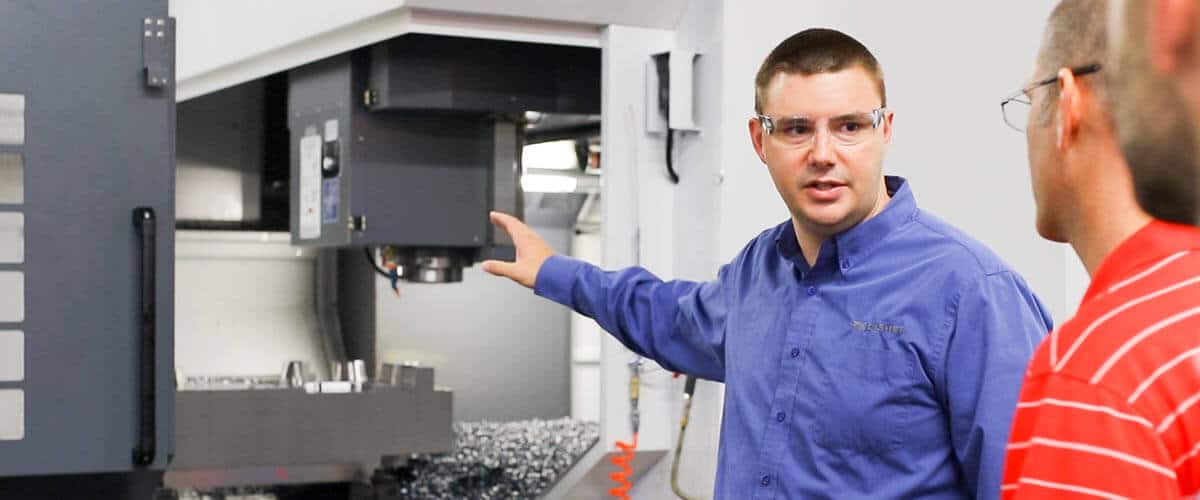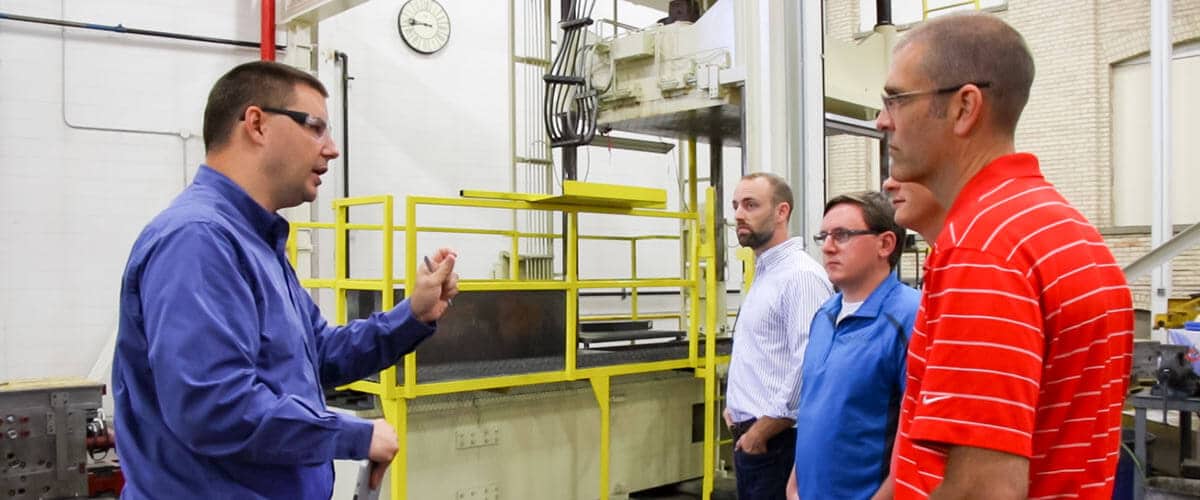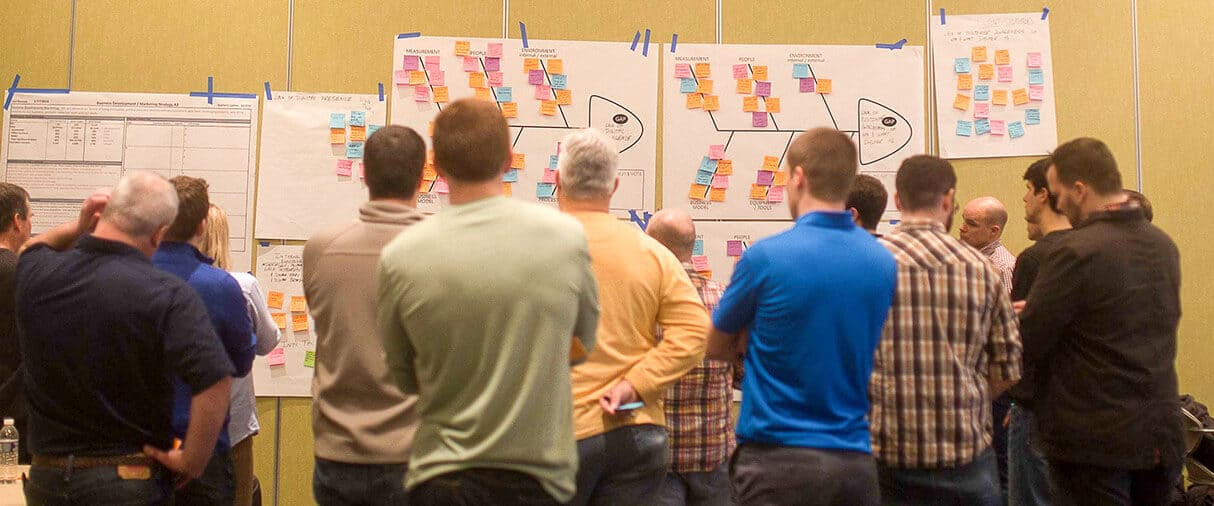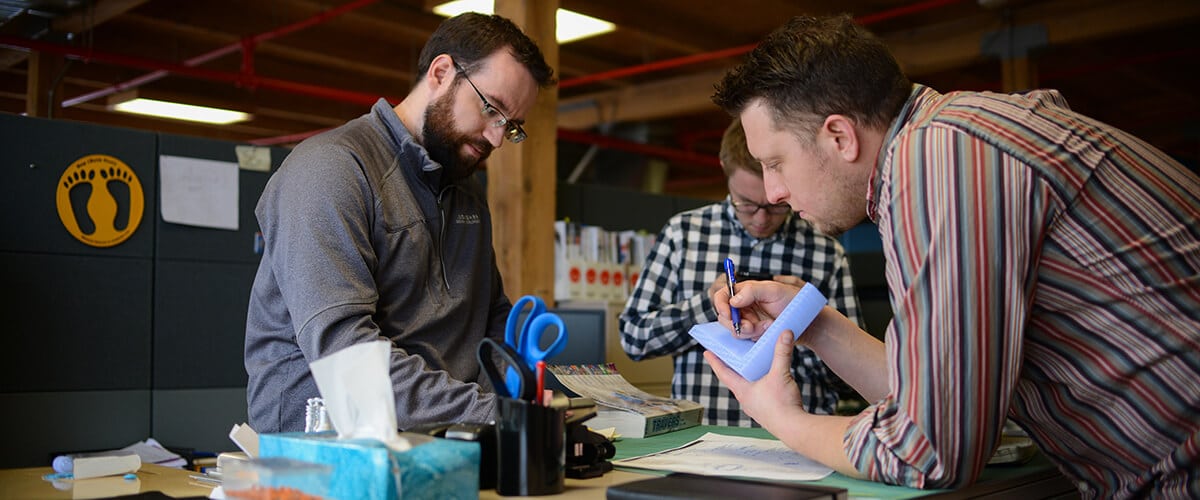A Day in the Life of a Manufacturing Engineer
August 17, 2017

Written By:
Joe Dyer | President

Operators, Operations, & Opportunities
There’s a Beatles song called “A Day in the Life” that closes the album Sgt. Pepper’s Lonely Hearts Club Band. At the end of this song, an E chord is struck and held onto for 45-seconds or so giving the impression that the song never really ends. I love the finality yet continual nature of that chord and song. Manufacturing is like that. At the end of the day, there is a feeling of finality. Parts were produced, products were shipped, and the shift bell rang. Yet, there is a continual component to the day. The next shift starts working, more parts are produced, and quality continues to get checked. Welcome to a day in the life of an engineer in manufacturing!
As an engineer working on the Manufacturing Tech Solutions team at DISHER, I am privileged to live out this dichotomy. Manufacturing drives the world around us. Many plants run 24-hours a day. All that production is being supported by teams of people working with pride and making quality products to be enjoyed by businesses and consumers around the globe.
But manufacturing engineering as a discipline is not just about keeping the line moving. It’s much broader than that. On any given day in the life of an engineer in manufacturing, I am expected to provide expertise in: manufacturing processes, quality tools, industrial engineering, automation technologies, design, lean, process development, and continuous improvement. These areas of expertise are applied in various degrees at every company but each facet is present at any successful manufacturer. The modern manufacturing plant is high tech, fast paced, and innovative. This is exactly what makes manufacturing appealing to me and positively fun.
The disciplines and skills I’ve mentioned can be thought of as the technical requirements of the job. Yet to truly be a successful engineer in manufacturing, a day in the life must revolve around three passions: working with operators, operations, and opportunities.
Operators
The best manufacturing engineers are people centered. When I am interviewing candidates or interacting with engineers working on a shop floor, I always try to discover how they treat the people around them. Just like any business, manufacturing is built by and for people. If we do not honor and uphold the dignity of the people around us, we will not succeed.
I can remember one instance when I was talking with an exceptionally good operator who was working on a line. This man was tasked with checking quality and packing parts into boxes. He was driven to do a great job day in and day out by his love for his family. His wife had health issues and his only child was in college. He was supporting both of them. He shared with me one of the most motivating moments he had at the company. Every year the owner would come around during Christmas and personally hand him a bonus check, look him in the eye, shake his hand, and thank him for his hard work that year. Sadly, this practice of thanksgiving had fallen by the wayside at this particular company.
This story exemplifies what drives a successful manufacturing engineer. They care about people not just performance. They understand that operators have lives, families, hopes, and valuable opinions. I recently heard a manager say, “We know the people behind the people who work for us”. That is profound. Do you know the people (friends, families, spouses, kids) behind the people (operators) who work for you?
As an unintended bonus, developing these types of relationships gives operators more freedom to share their ideas with you. Since operators are working on the day-to-day processes, quite often the best ideas for improvement come from them. I do my best every day to be sensitive to the concerns and ideas of the operators I work with because they are your most valuable resource.
Operations
The best manufacturing engineers are process oriented. Aside from the people aspect of the job, process understanding and appreciation is the next most important contributor to success. A day in the life of an engineer in manufacturing revolves around process. There are a myriad of examples including: the process of receiving shipments of raw materials; the process of moving material within a plant; the value-add processing (molding, machining, forming, etc.); the process of assembly; and the process of shipping. I could write an entire blog post on the intricacies of each one of these processes. In fact, there are often entire departments of people devoted to each process. You get the point. Manufacturing follows a process. You need to know the process. The best manufacturing engineers have a deep appreciation for the processes that govern their day. This does not mean the processes they are responsible for but rather all the processes in a plant.
I went skiing in Colorado when I was in college. Somewhere in the middle of the state, we crossed over the Continental Divide. The Continental Divide is the hydrological feature that separates the watersheds of the Atlantic and Pacific Oceans. Standing on top of the Continental Divide, a drop of rain that falls to your east will eventually end up in the Atlantic Ocean. A raindrop that falls to your west will end up in the Pacific Ocean. I thought this was a great analogy for the effects of processes within a plant. What is done upstream drastically affects what happens downstream. Having a knowledge of what those divides/processes are doing within a plant environment allows an engineer to think big picture and anticipate the future. Are there a lot of shipments coming in for raw plastic material? Anticipate an uptick in your molding schedule. Do you have a bottleneck at inspection? Look upstream for opportunities to eliminate the inspection operation downstream. By understanding the process as a whole (the value stream map can be a good tool to leverage here), a manufacturing engineer can mitigate risk and increase efficiency.
Opportunities
The best manufacturing engineers are problem solvers. This really sums it up nicely. If you have a passion for people and processes, then your natural inclination will be to solve problems. A day in the life of an engineer in manufacturing will inevitably involve opportunities to be a problem solver. They will come in many different forms.
Sometimes they will be simple to catch, hard to fix, and hard to root cause. For example, this clip will not insert properly into this part. Check the part – short shot. Easy to catch but why did it happen? I need to go back to the process and the tool design to root cause the problem. This may take some time. But first I better start organizing a sort and implementing interim corrective actions. Simple to catch, hard to fix, hard to root cause.
Sometimes problems will be hard to catch but simple to solve and root cause. Parts pass all function testing leaving the plant, but a small number do not pass the end of line vehicle testing at the customer. Simple to solve once I know the failure mode. Upon return it is easy to see parts are bending and need better shipping support.
Finally, some problems are not even problems at all but pure opportunities. I once had about 2,000 different CNC programs that engraved a single letter and a single number on every part: “H7”. I understood the reason for the letter being on there but never knew why the number was there. It bugged me. I dug down to the root cause and found out that it identified the material supplier for that part. The only catch was that we had only one material supplier. There used to be seven suppliers but now we only used one. There was no longer a need to identify the supplier and no more need to engrave a number. I was able to remove that code and save the company over $100k per year in cycle time. Instantly. Engineers in manufacturing always love to capitalize on opportunity.
DISHER
A day in the life of an engineer in manufacturing involves a variety of expertise yet it really comes down to three core disciples: a passion for people, an understanding of the process, and a knack for problem solving. This is what the engineering experts on DISHER’s Manufacturing Tech Solutions team thrive on. It is our delight to work with operators, operations, and opportunities at each one of our customer locations. And just like the album Sgt. Pepper’s Lonely Hearts Club Band— the work is never really done. It plays on and I find this very rewarding.
We are fanatical about Making a Positive Difference in the lives of our manufacturing customers. If you need any help with your manufacturing processes such as training, engineering, program management, or continuous improvement support—
Connect With Us
Written By: Joe Dyer, Team Lead – Manufacturing Tech Services
Joe has an Aeronautical Engineering degree from Western Michigan. He has a variety of experiences in manufacturing, quality systems, machining, and programming. Joe likes to spend time at home with his wife and two boys and lead ministries at his church.




